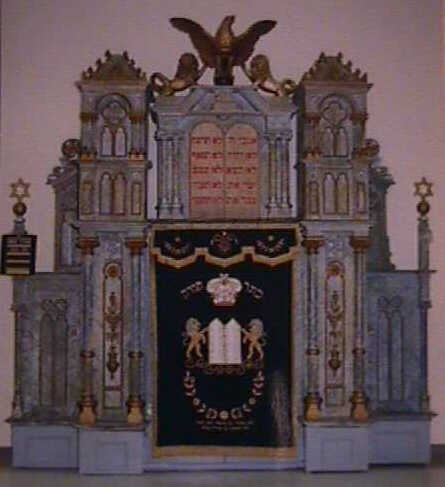Congregation Beth Hamedrosh Hagodol Kesser Maariv Anshe Luknik - History
History of Beth Hamedrosh Hagodol Kesser Maariv Anshe Luknik
The congregation moved and merged several times during its long and distinguished history, including sites in downtown Chicago, the south side, the west side and, most recently, the East Rogers Park neighborhood of Chicago's north side.
Independent of the development and growth of Beth Hamedrosh Hagodol Ubnai Jacob, the Lukniker Shul (named after the city of Luknik in Poland) was established on the west side and Congregation Kesser Maariv was formed (in East Rogers Park) in the late 1920s. Both of these Congregations were to play a role in the move of Beth Hamedrosh Hagodol Ubnai Jacob to Chicago's north side. During the 1940s, prior to the disintegration of the old west side Jewish community, the Lukniker Shul and Beth Hamedrosh Hagodol Ubnai Jacob merged, incorporating the names of both former congregations. The rabbi of the new congregation was Rabbi Zev W. Wein.
Congregation Kesser Maariv held a mortgage burning dinner on February 13, 1944, when it successfully retired the debt on a wood frame house it had acquired at 6418 N. Greenview Avenue. The rabbi of the congregation at that time was Rabbi Chaim G. Lando. At that dinner, the congregation announced plans for a capital campaign to construct a new synagogue building. These plans continued under the able rabbinic leadership of several rabbis who took over for Rabbi Lando, including Rabbi Nathan Gordon who was followed by Rabbi Victor Segal.
At the same time that Kesser Maariv was looking for needed funds, Beth Hamedrosh Hagodol Anshe Luknik was looking for a new home. A merger of the congregations took place in 1954, when it was agreed that Rabbi Zev Wein would become the rabbi of the merged entity. During the period of Rabbi Wein's leadership, a congregational school building was constructed in 1958. Rabbi Wein retired in 1984, and was replaced by Rabbi Louis Lazovsky. By 1984, the Congregational membership had started to decline as the Jewish population center shifted to West Rogers Park and Skokie; the neighborhood started to show signs of decay.
The neighborhood around the congregation continued to deteriorate during the ensuing years. On August 23, 1989, gangs broke into the congregation causing over $30,000 in damage but, thankfully, the Torahs and religious articles were not destroyed. During the High Holiday season of 1990, there were again incidents of violence, with rocks thrown at the congregation's windows during Rosh Hashanah. Windows were actually shot out by gangs during the Kol Nidreh address. As a result of the escalating nature of the violence, the congregation sold the synagogue and school building in December of 1990. The congregation held Shabbat services and classes in the Lincolnwood home of Rabbi Louis and Saretta Lazovsky, until a new and permanent home was identified and acquired in December of 1994 in Skokie, Illinois.
In addition to site development which began immediately, innovative educational programs including programs for adults, children and families were initiated in the Institute of Contemporary Jewish Life. The Institute has undertaken the teaching of Torah as a way of life rather than as a subject. Numerous family life education programs were introduced that provided first hand opportunities to learn about Judaism while serving others.
© 2013 by Congregation Beth Hamedrosh Hagodol Kesser Maariv Anshe Luknik.
